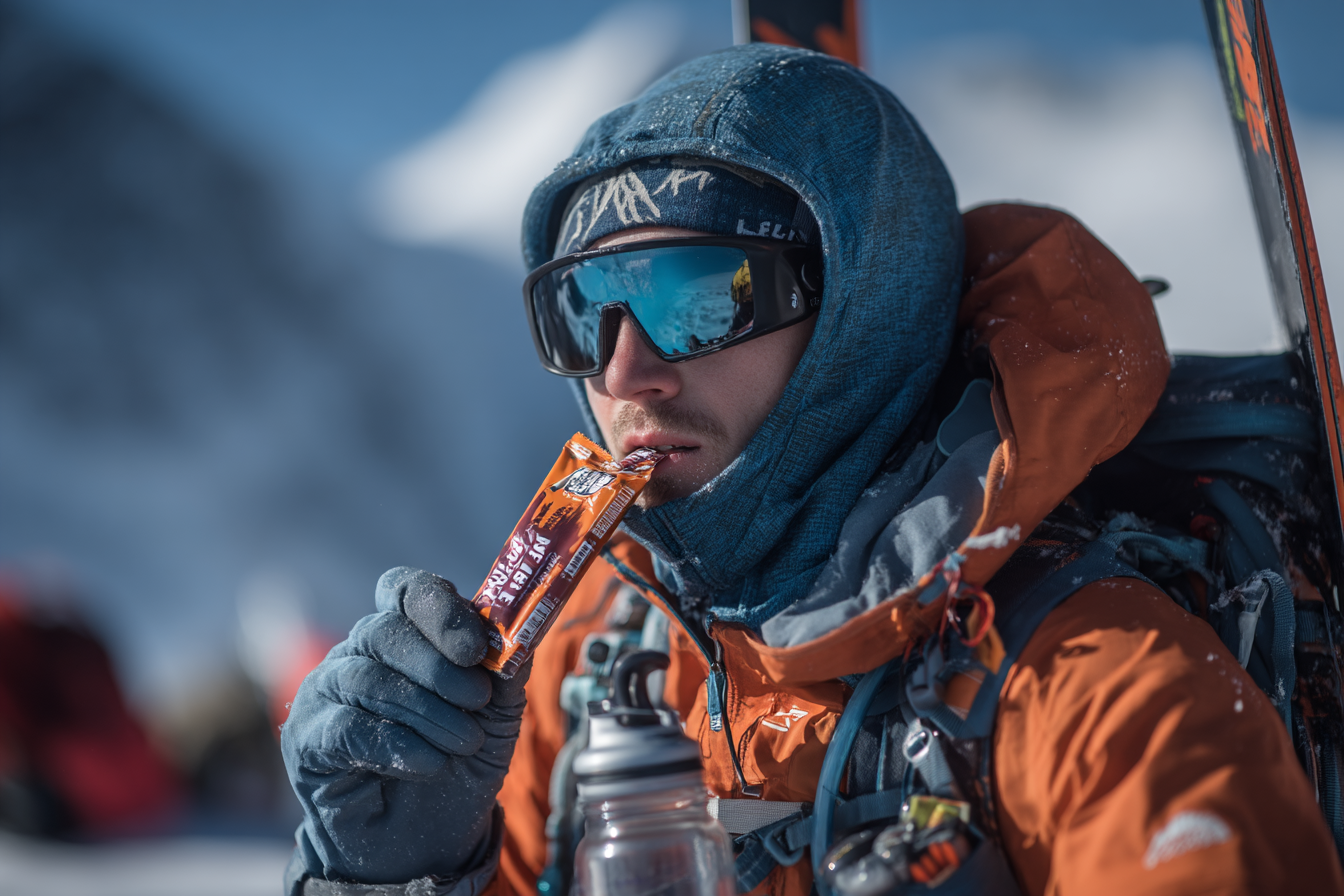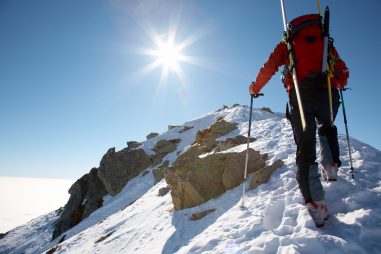Ski mountaineering is an exhilarating blend of endurance, skill, and breathtaking mountain scenery. To conquer steep ascents and thrilling descents, your body requires a steady supply of energy and proper hydration. In the demanding environments where ski mountaineering takes place, nutrition plays a pivotal role in maintaining focus, strength, and overall performance—before you even hit the snow, during the climb and descent, and after wrapping up your adventure. Let’s explore effective nutrition and hydration strategies to keep you fueled and ready for the challenge.
Pre-Trip Meal Planning
Setting the stage with the right pre-trip meal can make a significant difference in your ski mountaineering experience. The goal is to optimize glycogen stores—the carbohydrates stored in your muscles and liver—for sustained energy release throughout your outing. About 2-3 hours before heading out, focus on meals that are rich in complex carbohydrates, moderate in protein, and low in fat. Examples include oatmeal with fruit and nuts, whole grain toast with peanut butter and banana, or a quinoa and vegetable bowl with grilled chicken.
Avoid heavy, greasy foods that take longer to digest and may cause discomfort on the mountain. Hydration is equally crucial at this stage—drink plenty of water, but avoid excessive caffeine or alcohol, which can lead to dehydration. Consider sipping on a sports drink or electrolyte-enhanced water if you anticipate a longer or more strenuous session to top off your body’s sodium and potassium levels.
Hydration Strategies in Cold Environments
It’s a common misconception that cold weather reduces the need to hydrate, but ski mountaineering in chilly conditions requires just as much, if not more, careful attention to fluids. Cold temperatures can dull your thirst sensation, so it’s essential to develop a hydration routine rather than relying on natural thirst cues. Dehydration can lead to decreased endurance, impaired concentration, and increased risk of hypothermia.
Water remains the best option for hydration during your ski tour, but it’s crucial to keep bottles from freezing. Using insulated flasks or specialty bottles designed for cold weather can help. Warm liquids such as herbal tea or warm water with a splash of juice also encourage sipping. Additionally, sports drinks with electrolytes help replenish sodium, potassium, and magnesium lost through sweat, even if sweating feels less noticeable in cold conditions.
Best Snacking Options on the Mountain
Ski mountaineering often involves several hours of continuous movement, during which your body is burning through energy reserves. Having nutritious and easily digestible snacks on hand can help maintain blood sugar levels and prevent energy crashes. Ideal snacks combine carbohydrates, a bit of protein, and healthy fats for sustained fuel. Portable options that withstand cold and don’t require refrigeration include:
- Energy bars or granola bars (preferably with natural ingredients)
- Mixed nuts and dried fruits for quick energy and healthy fats
- Nut butters packaged in single servings—like almond or peanut butter pouches
- Cheese sticks or jerky for protein
- Fresh fruit such as apples or clementines, which tolerate cold well
Also, remember to eat small portions regularly—every 45 minutes to an hour—rather than waiting until you feel famished. This consistent fueling keeps your energy stable and helps you avoid muscle fatigue and reduced mental clarity.
Post-Activity Recovery Foods
The recovery phase after ski mountaineering is just as important as the preparation. Your muscles need to replenish glycogen stores and repair microtears caused by rigorous activity. Within 30 to 60 minutes post-exercise, aim for a meal or snack that contains both carbohydrates and protein in roughly a 3:1 or 4:1 ratio. This not only helps restore energy but also supports muscle recovery and reduces soreness.
Good post-activity options include:
- A smoothie with fruit, yogurt, and a scoop of protein powder
- A turkey sandwich on whole grain bread with plenty of veggies
- Cottage cheese topped with berries and honey
- Chocolate milk, which naturally balances carbs and protein
- A bowl of quinoa salad mixed with beans and roasted vegetables
Don’t forget to continue hydrating after your activity to fully replace lost fluids and electrolytes. Drinking water alongside food or electrolyte beverages aids in effective recovery.
Supplements and Electrolyte Balance
For serious ski mountaineers or those pushing high altitudes and tough conditions, managing electrolyte balance can be a game-changer. Sodium, potassium, magnesium, and calcium all play critical roles in muscle function, nerve signaling, and hydration. Sweating—even in cold weather—results in loss of these minerals.
Electrolyte supplements come in powders, tablets, or ready-made drinks and can be added to water for easy consumption on the go. Additionally, some athletes benefit from caffeine for alertness and fat metabolism, or branched-chain amino acids (BCAAs) to reduce muscle breakdown, though these should be used thoughtfully and possibly under expert guidance.
It’s best to test any supplements in training before relying on them in the backcountry scenario, as individual tolerance varies.
Practical Tips for Carrying and Storing Food
Food storage during ski mountaineering requires thoughtful planning to keep your nutrition intact and accessible. Cold conditions help by slowing bacterial growth, but freeze-thaw cycles can change the texture and taste of some foods or even cause them to harden excessively.
Consider these practical tips:
- Pack snacks in airtight, waterproof containers or resealable bags to prevent moisture damage.
- Keep hot snacks or drinks in insulated thermoses to maintain temperature and morale.
- Layer foods in your pack to minimize crushing; place more crushable snacks like bars or fruit on top.
- Avoid carrying glass containers; use lightweight, shatterproof options instead.
- Plan your meal/snack timing so you consume the more temperature-sensitive items first.
- Keep water bottles close to your body under your jacket or inside your pack’s insulated pockets to prevent freezing.
All of these small steps ensure your fueling strategy is practical and effective on steep ascents or challenging descents.
Fuel Your Ski Mountaineering Adventures
Navigating the demands of ski mountaineering relies on a well-rounded approach to nutrition and hydration. Thoughtful pre-trip meals set your energy reserves, while mindful hydration combats the deceptive dryness of cold air. Snacking regularly with nutrient-dense foods sustains your performance on the mountain, and post-activity nutrition supports the recovery needed for the next adventure. Alongside supplements and smart storage tactics, these strategies create a solid foundation for successful, safe, and enjoyable ski mountaineering trips. Equip your body the right way and embrace the thrill of the mountains with confidence and vigor!







